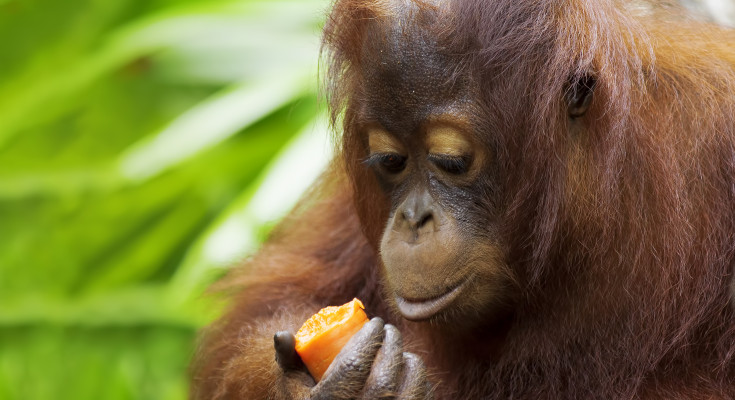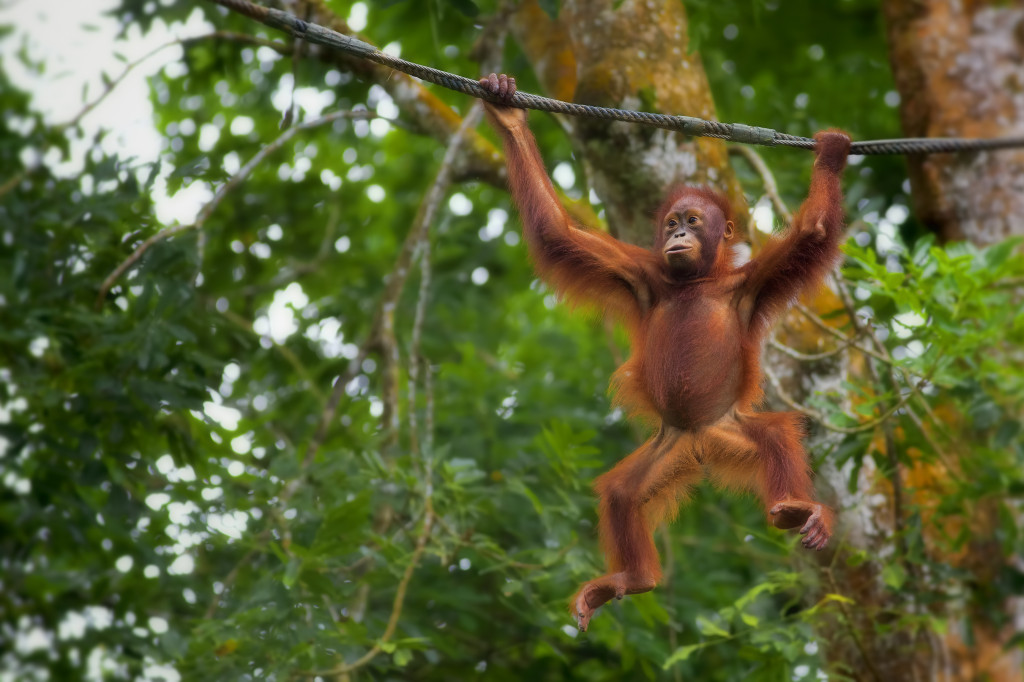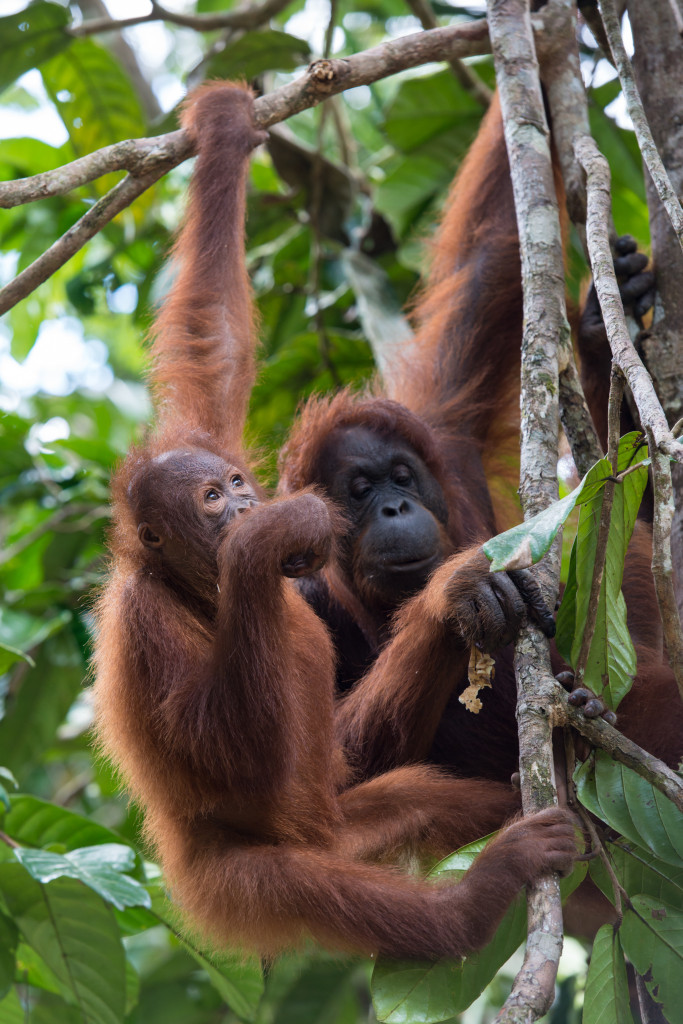By: Antariksa
|
The orangutan lives in the wild in only two places on earth: Sumatra and the island of Borneo. This means that most of them live within the borders of Indonesia. And this means that like many other creatures in the country, they have become victims of violence, greed and corruption. The Orangutan Foundation International estimates that the total world population of orangutans has shrunk 50% in the last decade. Only around 10,000 orangutans are thought to remain in Kalimantan, and over 1,000 of these are thought to be dying or captured each year. In North Sumatra, especially in the war-wracked province of Aceh, the orangutan is already on the verge of disappearance. One of the last places on earth that humans can come face to face with orangutans is in the Tanjung Puting National Park in Central Kalimantan province. But despite this rare opportunity, I was a little wary of traveling there. I am of Madurese heritage, and several years ago violent conflict broke out between ethnic Dayaks and Madurese in the town of Sampit, to the south of the National Park. Not only that, two days before I was scheduled to leave, I heard the news that a tourist had been eaten by a crocodile in the area, his body found only two days later with the help of a dukun buaya or traditional crocodile shaman. My fears for myself turned out to be ungrounded. Although resentment against Madurese still lingers in the area, I experienced no hostility. And the residents of Tanjung Harapan, the Dayak settlement closest to the park, reassured me about the crocodiles. ‘We do have lots of crocodiles around here,’ they said. ‘We spot them frequently, but we spend our whole lives bathing in this river and there’s never one of us who’s been eaten. That tourist was just unlucky.’ Indeed over the course of my journey, I saw many people bathing and washing clothes in the Sekonyer River, and even at Camp Leakey, the spot where the unlucky tourist had met his demise. I was never brave enough, however, to dip so much as a foot into the river. But while I encountered no problems as a traveler, the problems of both the orangutans and the humans who live in the area were starkly apparent. Poverty, corruption and environmental devastation are posing serious threats to all creatures who inhabit the region. The Tanjung Puting National Park covers 305,000 hectares of what was once virgin forest. It has long been home not only to orangutans and humans but proboscis monkeys, sun bears, pig-tailed macaques and a vast variety of birds. Now, however, this natural habitat is under attack. According to Indonesia’s State Ministry of the Environment, between 2 and 2.4 million hectares of Indonesia’s forests disappear each year, destroyed by fires and logging. It is estimated that over half the timber exported from Indonesia has been illegally logged. Even in ‘protected’ areas like the national park, illegal logging continues, allegedly in collusion with local officials and the military. While some major corporations, like Sweden’s Ikea and the U.S.’s Home Depot, have promised to stop buying wood from Indonesia’s rainforests, billions of dollars of timber is still shipped out of Kalimantan each year to feed the first world demand for tropical hardwood. First published in Latitudes Magazine |














